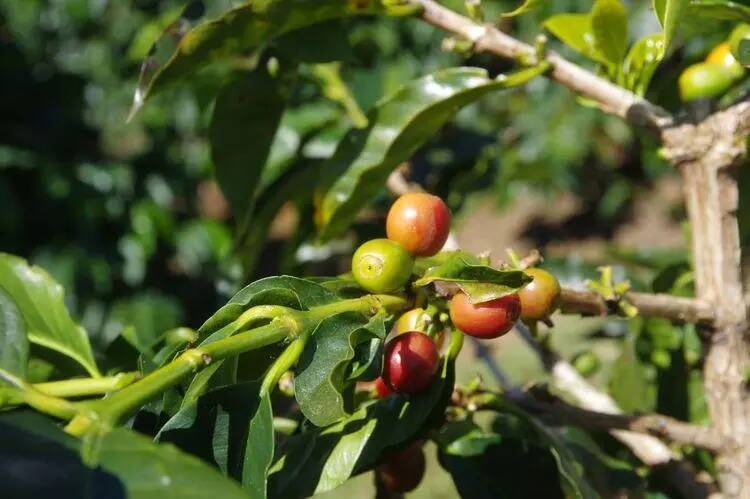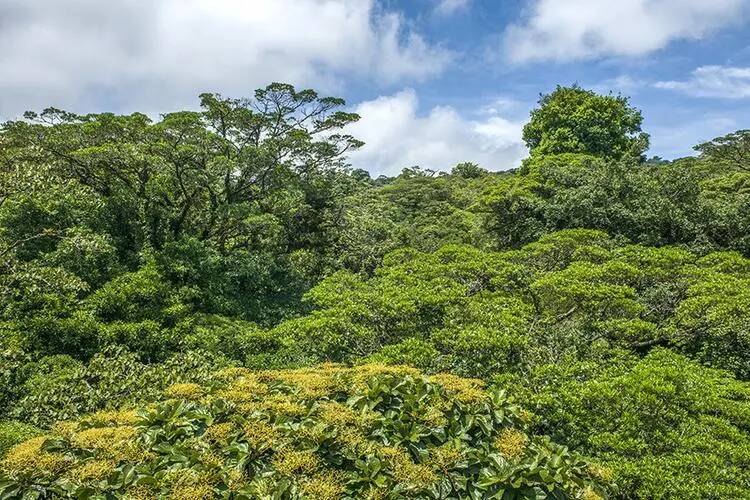Costa Rican production fell, coffee exports fell by nearly 30%
Costa Rica's coffee exports fell 28 percent in January compared with the same month last year, mainly due to lower harvests and strong international supplies, according to figures released by Costa Rica's coffee agency ICAFE.

According to ICAFE, the total cargo volume for January was 60,757 bags of 60 kilograms each. Costa Rica expects to export approximately 1.3 million bags in the current 2023/24 harvest season, a decrease of nearly 13 per cent compared to shipments in the previous cycle. Costa Rican officials say bad weather conditions and a possible glut of Arabica in global markets are putting pressure on prices.
Costa Rica exports coffee mainly to the United States and the European Union, but to sell coffee beans in the EU, it must comply with the EU's earlier Deforestation Free Regulation (EUDR), which stipulates that no person or enterprise can sell products related to deforestation in the EU market, including coffee and cocoa. The regulation will have an adaptation period of 18-24 months and will come into force as soon as the end of December 2024. As a result, many importers are afraid to import coffee, and many coffee-producing countries have responded to the regulations, but they have invested a lot of money in the process.

Recently, accidents have also occurred in San Jose, Costa Rica. According to an earlier report in Costa Rica's El País newspaper, since the end of January, Costa Rica's tap water and sewer (AyA) has begun to receive complaints from residents of several counties in San Jose province, saying that tap water smells of gasoline, and many people have symptoms of vomiting and diarrhea.
AyA and the Ministry of Health later confirmed that tap water was contaminated with hydrocarbons and advised against drinking tap water, not using tap water for food preparation or washing, and not using boiled water. After investigation, University of Costa Rica (UCR) researchers ruled out the possibility that the contaminated water contained gasoline or diesel, but it is still unclear what the specific pollutants are.
However, water supplies are currently contaminated in several areas and the crisis continues. And some industry insiders say that water pollution will also affect land. The reason is that hydrocarbons leak into the surrounding soil, and when oily substances enter the soil, they will destroy the soil structure, reduce the water permeability of the soil, change the physical properties of the soil, and reduce the activity of the soil. Therefore, there are concerns about the quality and yield of future agricultural products such as coffee in the region.
Important Notice :
前街咖啡 FrontStreet Coffee has moved to new addredd:
FrontStreet Coffee Address: 315,Donghua East Road,GuangZhou
Tel:020 38364473
- Prev

Hand coffee is too sour, too bitter how to adjust? What is the reason for over-extraction of black coffee?
In the cup test and evaluation system, if you feel that the acidity, sweetness, flavor, cleanliness, taste and aftertaste of a cup of coffee are very harmonious, then its sense of balance must not be low, which also shows that the quality of this bean is very good. In the end, it will get a good score. When it comes to the cooking stage
- Next

Introduction of Rose Valley Coffee beans in Dashu Manor, Santander, Colombia
Colombia is a land, sea and preparation country located in northern South America, connected with Venezuela, Brazil, Ecuador, Peru, Panama and other countries, bordered by the Pacific Ocean to the west and the Caribbean Sea to the north. The topography of Colombia is roughly divided into the western mountains and the eastern plains, mainly the Andes in the west and Orinocopin in the east.
Related
- What grade does Jamaica Blue Mountain No. 1 coffee belong to and how to drink it better? What is the highest grade of Blue Mountain coffee for coffee aristocrats?
- What are the flavor characteristics of the world-famous coffee Blue Mountain No. 1 Golden Mantelin? What are the characteristics of deep-roasted bitter coffee?
- Can I make coffee a second time in an Italian hand-brewed mocha pot? Why can't coffee be brewed several times like tea leaves?
- Hand-brewed coffee flows with a knife and a tornado. How to brew it? What is the proportion of grinding water and water temperature divided into?
- What is the difference between Indonesian Sumatra Mantinin coffee and gold Mantinin? How to distinguish between real and fake golden Mantelin coffee?
- What does bypass mean in coffee? Why can hand-brewed coffee and water make it better?
- Unexpected! Ruixing Telunsu lattes use a smoothie machine to foam milk?!
- % Arabia's first store in Henan opens into the village?! Netizen: Thought it was P's
- Does an authentic standard mocha coffee recipe use chocolate sauce or powder? Mocha Latte/Dirty Coffee/Salty Mocha Coffee Recipe Share!
- What is the difference between Vietnam egg coffee and Norway egg coffee? Hand-brewed single product coffee filter paper filter cloth filter flat solution!

